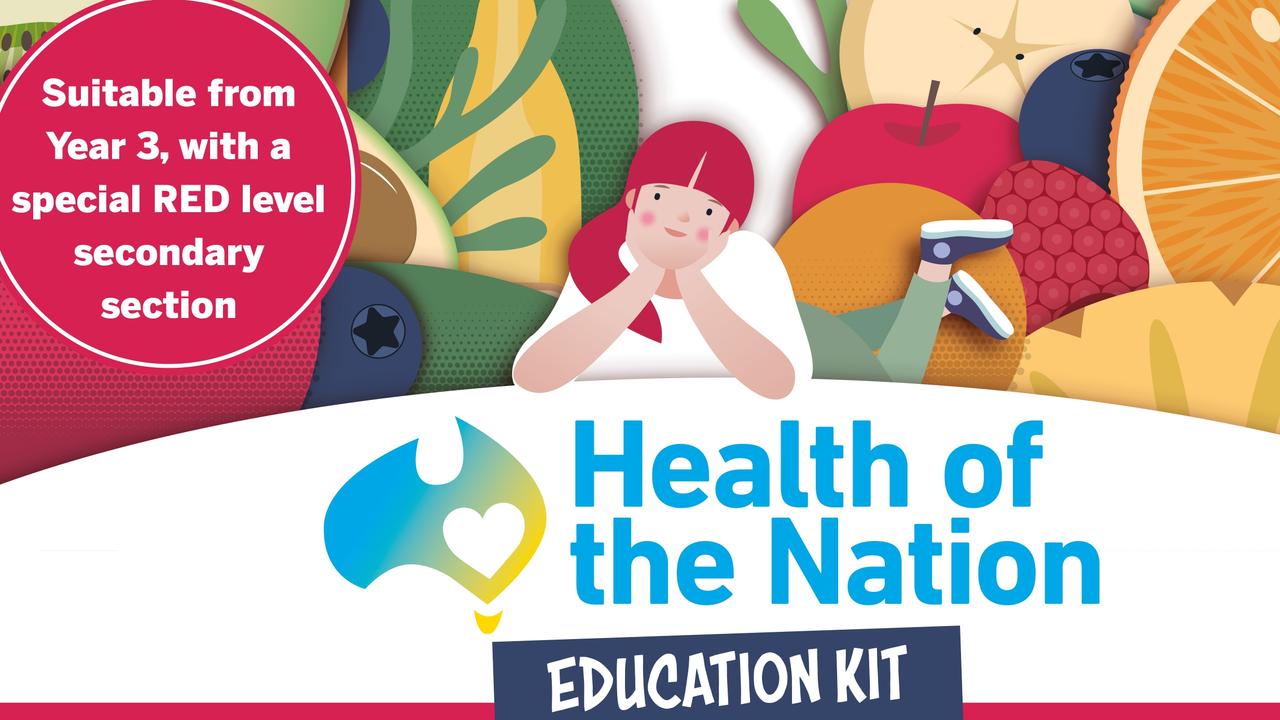Health of the Nation 2024: Why sleep is so important for a child’s development
Part 4: About 18 million Australians don’t get enough sleep at night, including many children. This can impact how your body and mind develops as you grow. Learn how much sleep you need
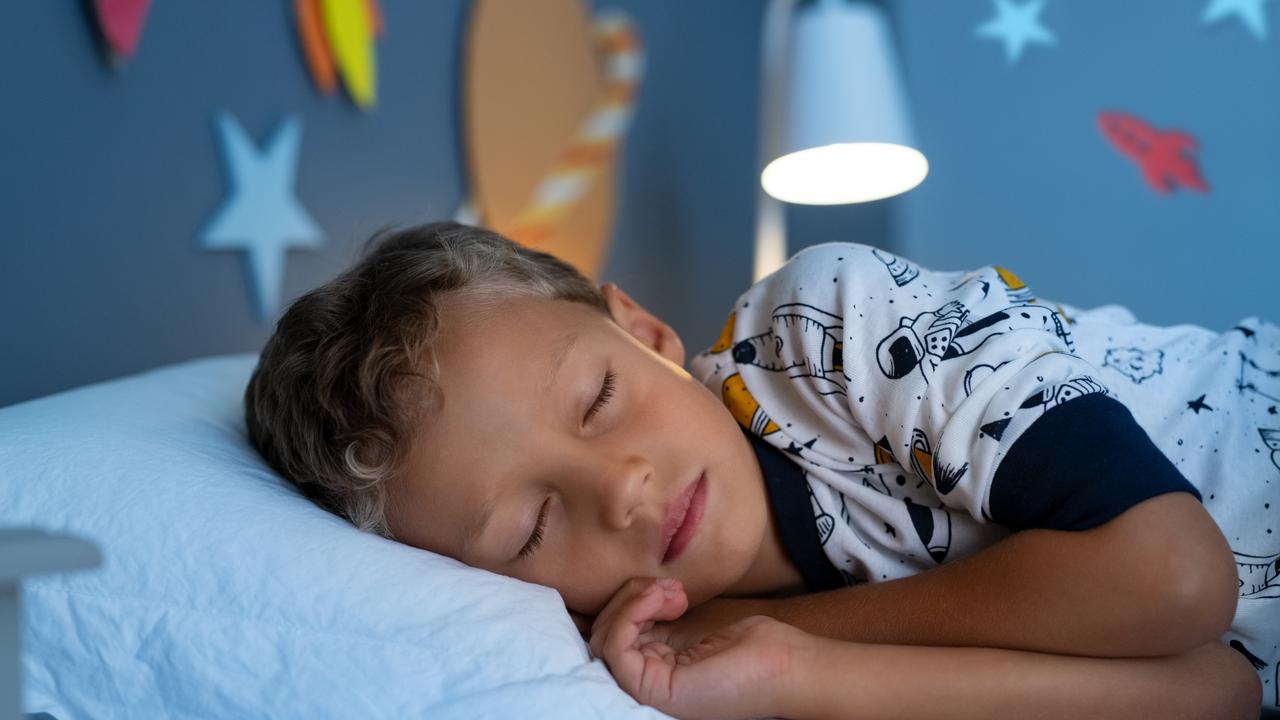
READING LEVEL: GREEN
Children who want to develop into healthy, strong teenagers and adults need their sleep.
Doctors across Australia all agree that regularly getting the right amount of sleep will help children’s bodies and minds develop naturally and fully.
Sleep is so important because it’s where our memories start being made and it can have a direct effect on our happiness by improving our mood.
Along with that, research shows sleep is very important because it impacts alertness and attention, your ability to think and make good decisions, your resilience*, learning new words, and your long-term memory.
News Corp Australia’s Health of the Nation survey, released in January, found the average Australian aged over 18 gets 6.9 hours of sleep a night, which is less than the seven to nine hours of uninterrupted* sleep that is recommended.
About two-thirds of our population of 26.6 million are affected by poor sleep – that’s 18 million people not getting enough Zzzzzs at night.
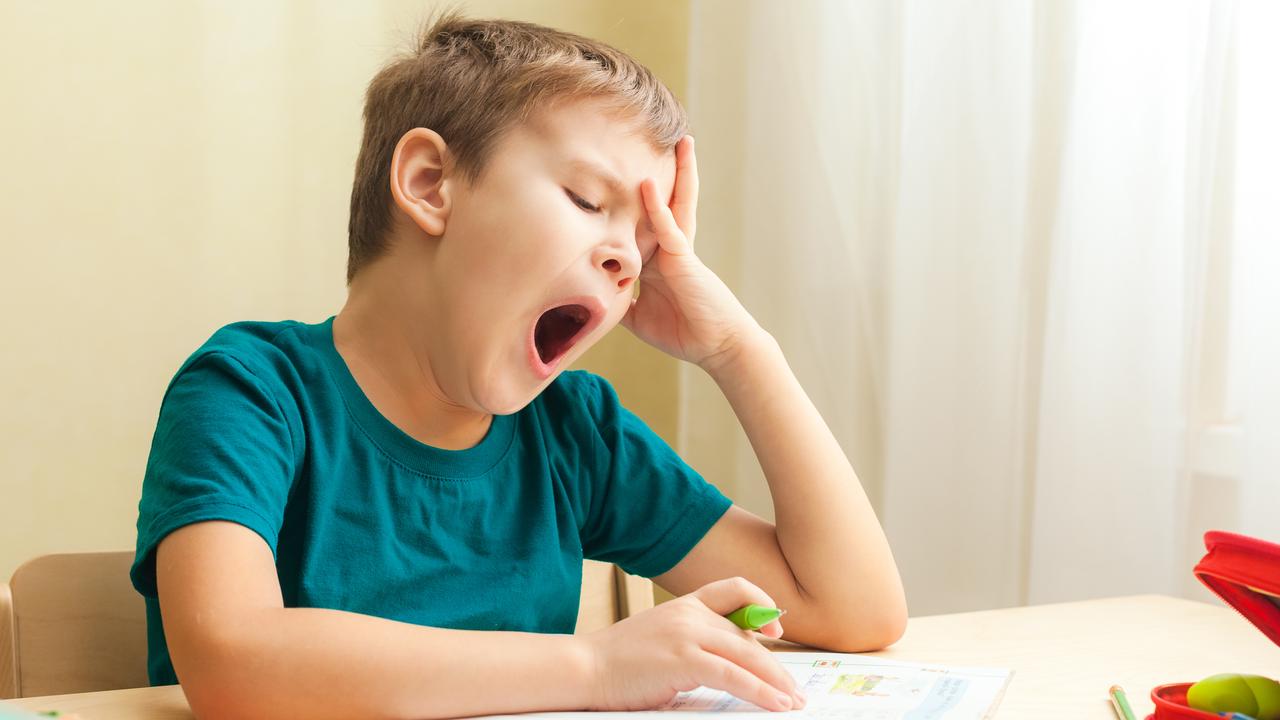
WHY KIDS NEED THEIR SLEEP
Doctors believe lack of sleep can disrupt a child’s hormone* levels that regulate appetite and food intake – and that can lead to them eating bigger portions of foods, more snacking and gaining weight.
Better Health Channel in Victoria states lack of sleep can impact your brain, including your ability to remember, control your emotions and attention, the speed you process information and the ability to have a clear understanding of difficult problems or situations. Even short-term sleep deprivation* can impair these functions.
In particular, sleep plays a key role in forming memories and it also flushes out toxic* waste products that build up in your brain during the day.

SLEEP CAN HELP YOU STAY TRIM
Australian scientists recently discovered that a good’s night sleep is just as good as exercise for keeping kids trim*.
They discovered while physical exercise gives ideal all-round health and wellbeing*, children can achieve the same 7.4 per cent reduction in your Body Mass Index (BMI, which is a measurement of your body’s size and level of body fatness) by either exercising 17 minutes more a day, sleeping an extra 52 minutes or reducing sitting or inactive* time by an extra 56 minutes.
The study, from the University of South Australia, the Murdoch Children’s Research Institute and the National Heart Foundation of Australia, assessed 1179 children aged 11 and 12.
“International guidelines suggest that children under 12 need nine to 11 hours of sleep, 60 minutes of physical exercise and no more than two hours of recreational* screen time per day, yet only 7 per cent of children are regularly meeting these goals,” said University of South Australia lead researcher Dr Dot Dumuid.
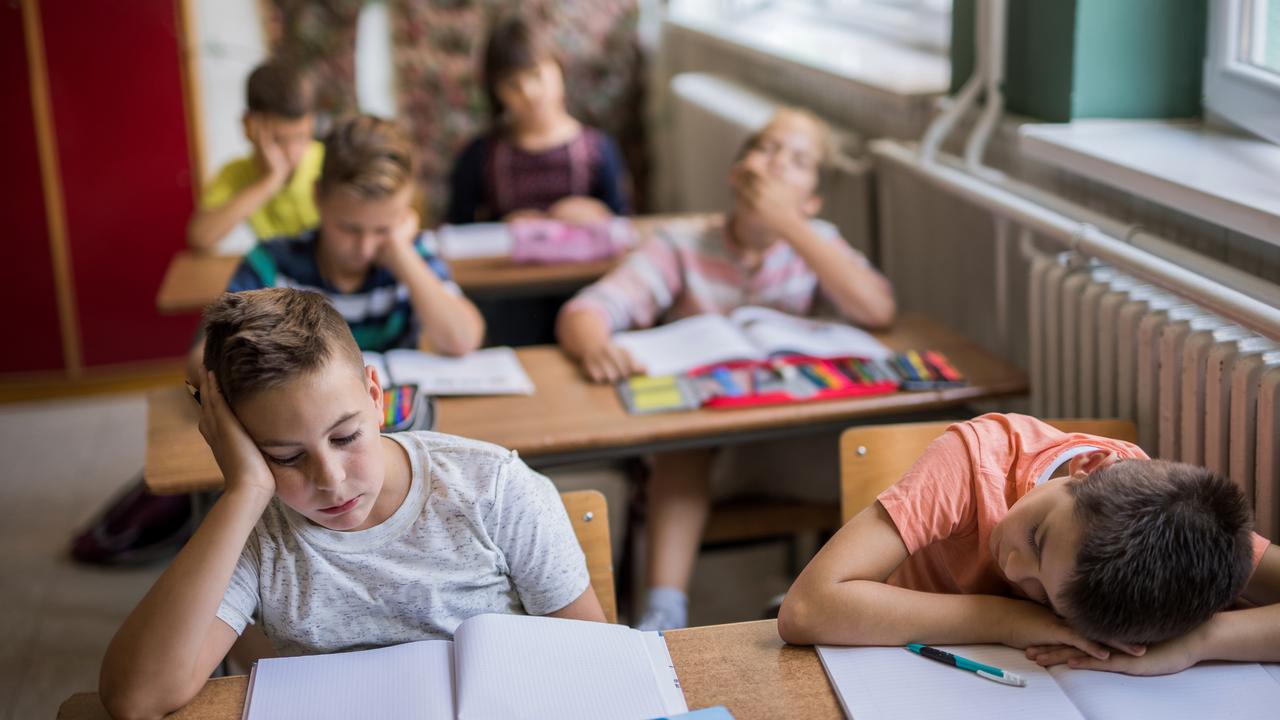
MENTAL HEALTH AND TEENAGE SLEEP
Queensland sleep consultant Amanda Bude said sleep had an impact on teenage children’s physical and mental health.
“Sleep health is not just about the physical characteristics of health but also the mental health safety of our teens,” she said.
However, University of Queensland researchers have found most teenagers are getting three hours less per night than the recommended* eight to 10 hours.
“The brain experiences significant* development changes during the formative* teen years, and adequate sleep is an essential part of that development,” University of Queensland sleep expert Dr Arthur Teng said.
“Chronic* sleep deprivation reduces the brain’s ability to process new information and can lead to emotional issues such as depression and aggression.”
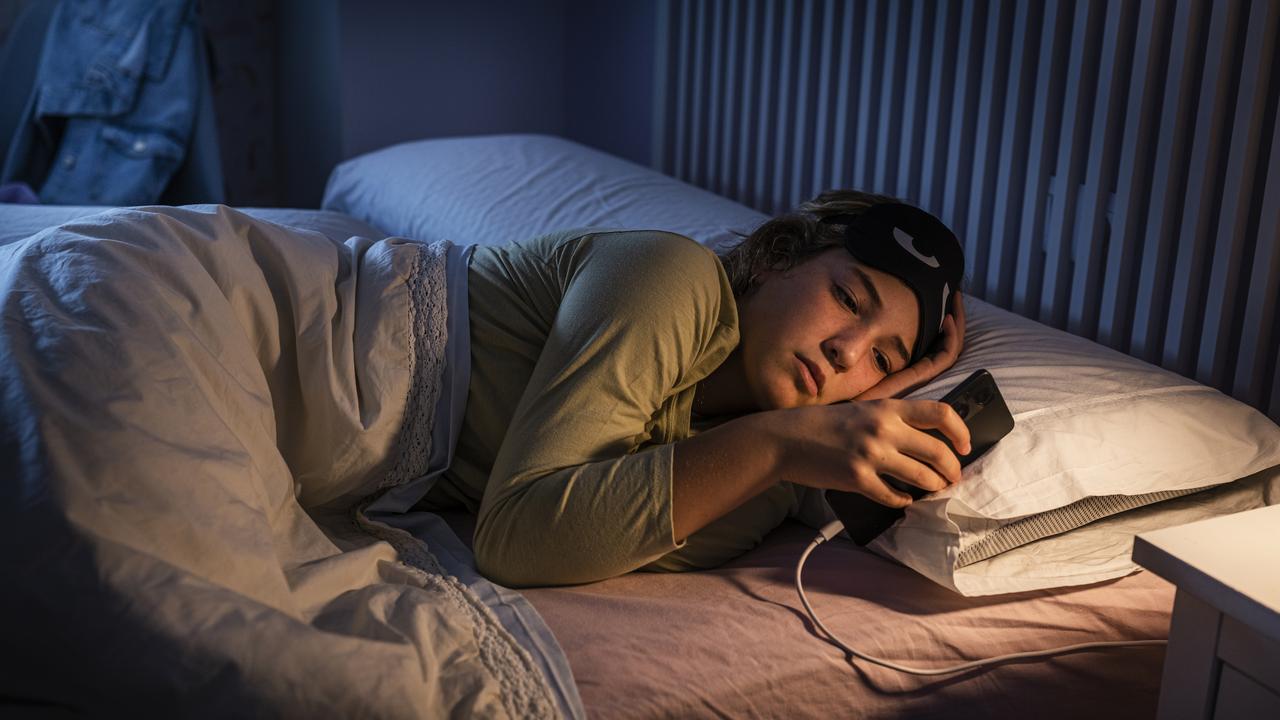
WHAT HAPPENS TO OUR BODIES WHEN WE SLEEP?
We all move between different types of sleep during the night and during long naps.
From about six months of age, a sleep cycle contains:
- Rapid eye movement (REM) sleep
- Non-REM sleep.
In REM sleep, your eyeballs flicker from side to side underneath your eyelids. REM sleep is also called dream sleep.
Non-REM sleep consists of deep sleep and light sleep. It’s harder to wake children who are in deep sleep, whereas children in light sleep wake up easily.
The amount of REM and non-REM sleep in a cycle changes throughout the night.
It’s also common to wake briefly between sleep cycles.
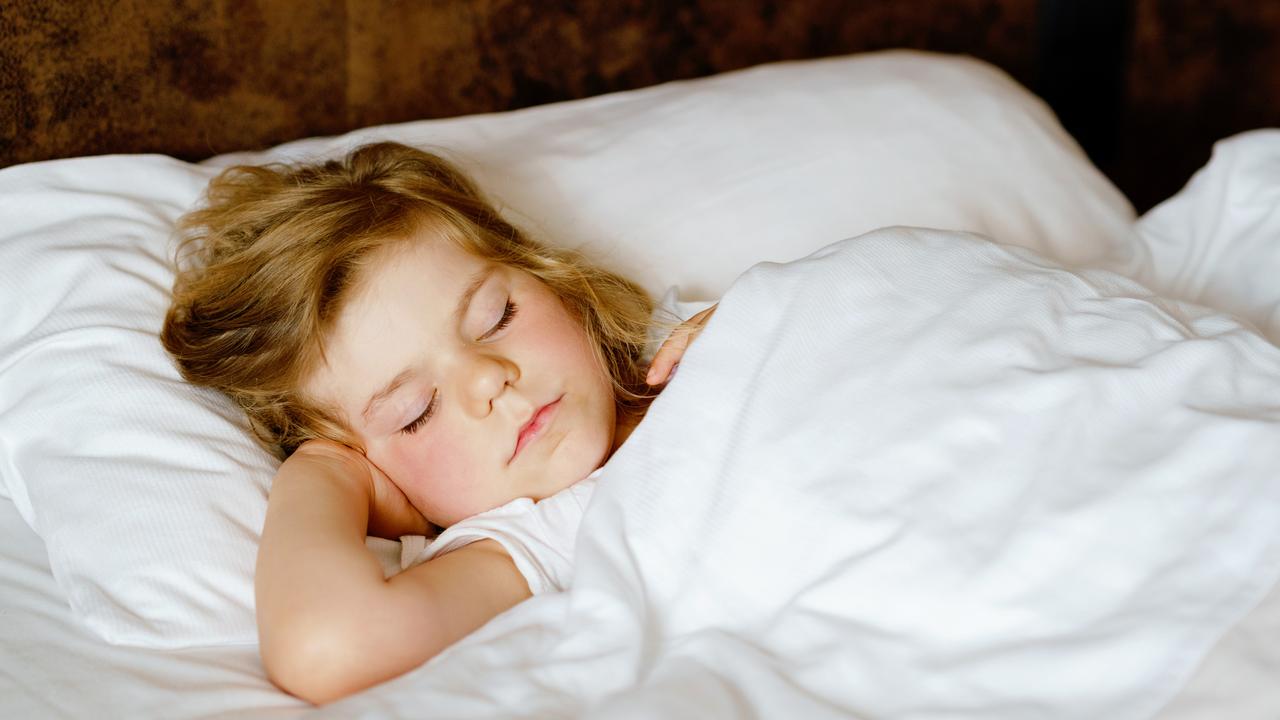
HOW THESE CYCLES AFFECT CHILDREN’S SLEEP
Children have a lot of deep non-REM sleep in the first few hours after they fall asleep. That’s why children sleep so soundly in the first few hours after they’ve gone to bed and are rarely woken by anything.
Children have more REM sleep and light non-REM sleep in the second half of the night. Children wake more easily from these kinds of sleep, so they might wake up more during this time than at the beginning of the night.
In early childhood years, sleep cycles get longer as children get older. In children aged three years, sleep cycles are about 60 minutes. By about five years, sleep cycles have matured to the adult length of about 90 minutes.
Source: Raisingchildren.net.au
TIPS FOR A GOOD SLEEP
- Stick to a regular bedtime and wake up time
- Avoid screen time one hour before bed and keep screens out of bedrooms.
- Children aged five to 12 years need nine to 11 hours of uninterrupted sleep
- Teenagers need eight to 10 hours of solid sleep.
HOW LACK OF SLEEP CAN MAKE YOU FEEL
- Feeling fatigued or lacking in energy throughout the day, yawning frequently
- Feeling irritable*
- Change in mood including feeling depressed, anxious or stressed
- Low motivation
OTHER ISSUES LACK OF SLEEP CAUSES
Lack of sleep can change how you think and move, such as:
- Having difficulty concentrating
- Having trouble remembering things
- Processing information at a slower pace
- Poor balance and co-ordination
- Increased appetite, especially for junk food
POLL
GLOSSARY
- resilience: ability to bounce back or keep going in tough times
- uninterrupted: not stopped
- hormone: special chemicals your body makes to help it do certain things – like grow
- deprivation: being kept from possessing, enjoying, or using something
- toxic: poisonous
- trim: slim or not fat
- wellbeing: how you feel, as in happy, comfortable, satisfied and so on
- inactive: not moving
- recreational: relating to relaxing and things you do in your spare time
- recommended: suggested
- significant: big
- formative: helping to shape or grow
- chronic: continuing for a long time
- irritable: easily upset or angered
QUICK QUIZ
1. How many Australians are affected by poor sleep?
2. What is the difference between REM and Non-REM sleep?
3. How can a lack of sleep make you feel?
4. What impact can an extra 52 minutes of sleep have on your body?
5. What does sleep help flush out of your body?
LISTEN TO THIS STORY
CLASSROOM ACTIVITIES
Kids News has produced a free Health of the Nation education workbook full of classroom activities to support the information and expert advice in this series.
It has been crafted by one of our expert Kids News teachers and complements the information in these education kit articles.
Sign up for the free the Kids News weekly newsletter HERE to access the education workbook plus more news and initiatives.
EXTRA READING
PART 5: How technology can track our health
